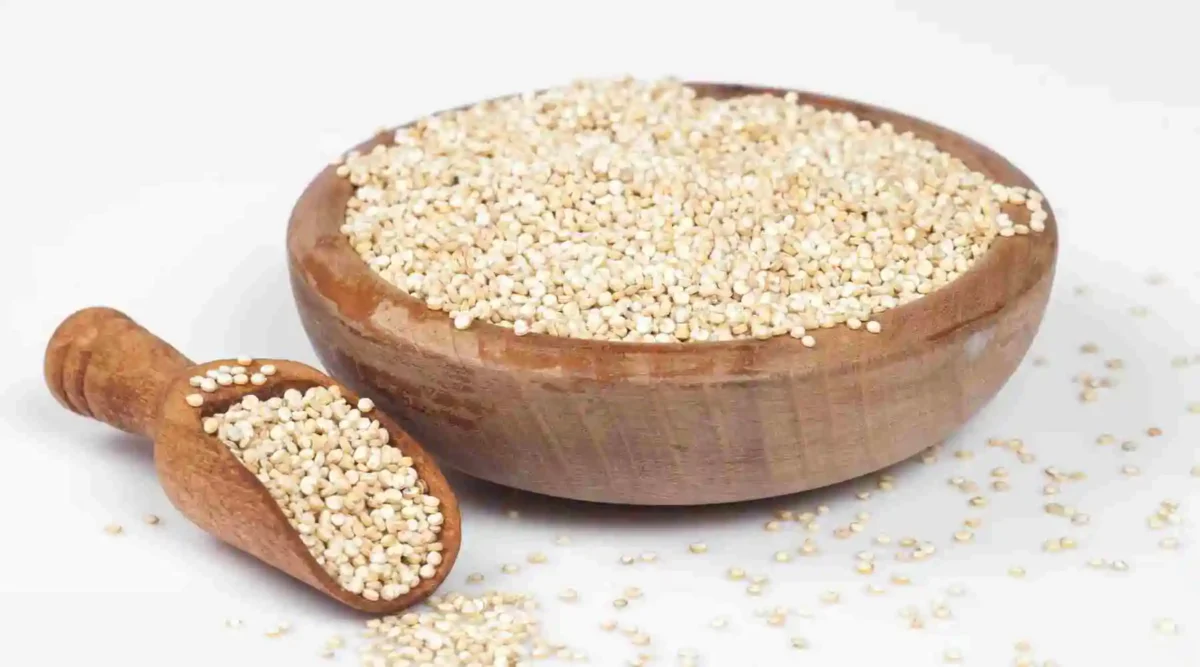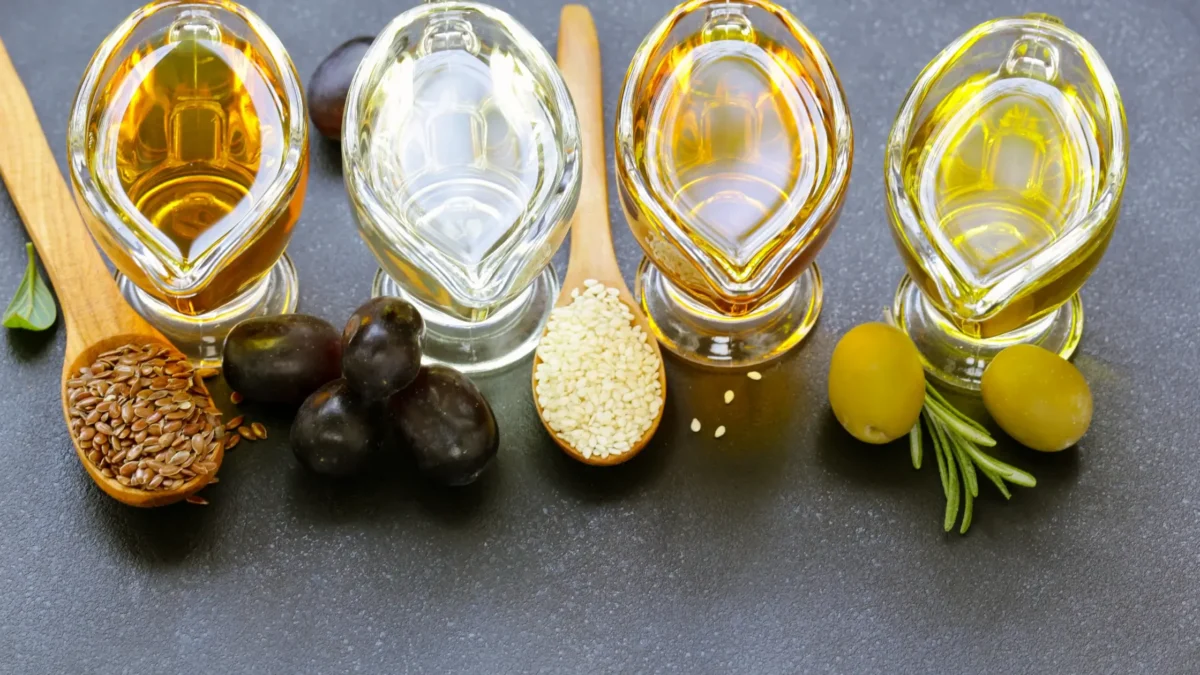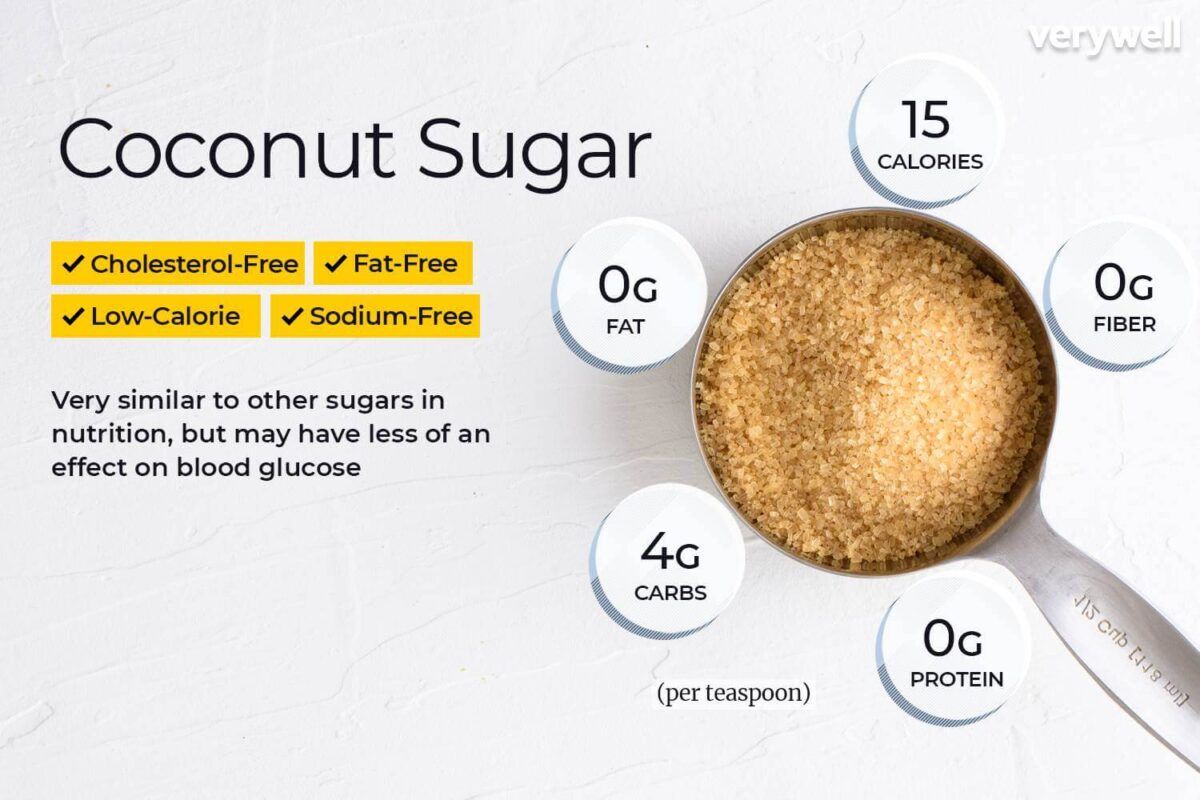Quinoa, often hailed as a superfood, has taken the health and wellness world by storm. With its impressive nutritional content and array of health benefits, it’s no wonder that people are eager to understand whether quinoa is truly good for them. In this comprehensive guide, we will delve into the question, “Is quinoa good for you?” and provide you with all the information you need to make an informed decision about incorporating this nutrient-rich grain into your diet.
Table of Contents
What is Quinoa?
Quinoa, pronounced “keen-wah,” is a nutritious and versatile pseudo-cereal that has gained immense popularity in recent years. Despite its small size, quinoa packs a powerful punch when it comes to its nutritional profile, making it a fantastic addition to a healthy diet.
Quinoa Farming, Sustainability, and Ethical Concerns
Quinoa has become increasingly popular because of its sustainable farming practices. Quinoa is primarily cultivated in South America, particularly in Peru and Bolivia. However, as demand has risen, concerns about fair trade and the impact on local farmers have surfaced.
Quinoa farming raises significant concerns regarding sustainability and ethics. The increasing global demand for quinoa has led to expanded cultivation areas, resulting in potential environmental consequences such as deforestation and habitat loss. Intensive farming practices, including pesticide use, can further impact ecosystems. Additionally, ensuring fair trade and ethical sourcing is crucial to protect the rights and well-being of farmers. Supporting sustainable practices and certified producers can help mitigate these concerns and contribute to a more responsible quinoa industry.
Nutritional Value of Quinoa
Quinoa is often referred to as a superfood because of its impressive nutrient profile. It is a good source of protein, fiber, and various vitamins and minerals. One cup (185 grams) of cooked quinoa contains:
– Protein: 8 grams
– Fiber: 5 grams
– Magnesium: 30% of the RDA
– Phosphorus: 28% of the RDA
– Folate: 19% of the RDA
– Iron: 15% of the RDA
– Zinc: 13% of the RDA
– Potassium: 9% of the RDA
Additionally, quinoa contains small amounts of calcium, vitamin E, and several B vitamins. It is also gluten-free, making it a good option for people with gluten intolerance or celiac disease.
Also Read: Effective High Protein Vegetables: A Guidance to Maximize Your Plant-Based Protein
Health Benefits of Quinoa
Incorporating quinoa into your diet can contribute to various health benefits. From aiding weight management and promoting heart health to supporting digestion and managing diabetes, quinoa offers an array of advantages. Does this section provide an in-depth analysis of the specific health benefits associated with consuming quinoa which can answer Is quinoa good for you?
Quinoa vs Rice and Other Grains
When comparing quinoa to other grains like rice and wheat, it stands out as a nutritional powerhouse. Quinoa contains higher protein content and a better amino acid profile compared to most grains. It is also lower in carbohydrates and has a lower glycemic index, which means it has a minimal impact on blood sugar levels compared to refined grains. Moreover, quinoa provides more dietary fiber, vitamins, and minerals than many other grains.
Quinoa and Weight Loss
If you are on a weight loss journey, quinoa can be a valuable addition to your diet plan. It’s high fiber and protein content contribute to feelings of satiety, helping you control cravings and maintain a healthy weight.
Quinoa is a valuable ally in weight loss and management due to its high fiber content and protein. The fiber helps to keep you feeling fuller for longer, reducing cravings and overeating. Protein is known to increase satiety and support the preservation of lean muscle mass during weight loss.
Quinoa and Diabetes

For individuals with diabetes, quinoa can be a suitable grain option. With its low glycemic index and high fiber content, quinoa helps regulate blood sugar levels. The complex carbohydrates and fiber in quinoa contribute to slower digestion and absorption of glucose, preventing spikes in blood sugar.
Quinoa and Heart Health
Quinoa, the ancient grain celebrated for its nutritional value, can contribute to heart health. Packed with nutrients, quinoa is a good source of fiber, which plays a crucial role in maintaining healthy cholesterol levels and reducing the risk of heart disease. It also contains heart-healthy fats, such as omega-3 fatty acids, that have been linked to improved cardiovascular health.
Quinoa is low in sodium and rich in potassium, supporting optimal blood pressure levels. Additionally, its abundance of antioxidants, including flavonoids and phenolic compounds, may help reduce inflammation and oxidative stress, both of which are linked to heart disease. By incorporating quinoa into a balanced diet, individuals can nourish their bodies and support heart health naturally.
Quinoa and Digestion
A well-functioning digestive system is essential for optimal health. Quinoa’s high fiber content promotes healthy digestion and prevents constipation. Additionally, it contains compounds that aid in gut health. The fiber in quinoa acts as a prebiotic, supporting the growth of beneficial bacteria in the gut. A healthy gut microbiome is crucial for digestion, nutrient absorption, and overall immune function.
Also Read: Chia Seeds: A Superfood with Super health benefits
Is Quinoa Suitable for Everyone?
Quinoa, the highly nutritious grain alternative, is generally suitable for most people. Its versatility, gluten-free nature, and complete protein content make it a valuable addition to many diets. However, a few considerations need to be kept in mind.
For individuals with gluten sensitivities or celiac disease, quinoa is an excellent choice as it is naturally gluten-free. It provides a safe and nutritious option to replace gluten-containing grains. Moreover, its high protein content makes it an ideal choice for vegetarians and vegans who rely on plant-based protein sources.
While quinoa is generally safe for consumption, rare cases of allergic reactions have been reported. If you experience symptoms such as itching, swelling, or difficulty breathing after consuming quinoa, seek medical attention immediately. Allergists can conduct tests to determine if you have an allergy to quinoa.
Additionally, individuals with a history of kidney stones or oxalate-related issues should moderate their quinoa intake. Quinoa, like other plant-based foods, contains oxalates, which can contribute to the formation of kidney stones. Staying adequately hydrated and consuming quinoa in moderation can help mitigate this risk.
It is important to note that consulting with a healthcare professional or registered dietitian is recommended, especially if you have specific dietary concerns, allergies, or medical conditions. They can provide personalized advice based on your individual needs and help determine if quinoa is suitable for you.
Myths and Misconceptions About Quinoa
There are a few common misconceptions surrounding quinoa that need to be addressed:
Myth 1: Quinoa is high in calories and not suitable for weight loss.
Fact: While quinoa is slightly higher in calories compared to some other grains, its high fiber and protein content make it a satisfying and nutrient-dense choice for weight loss and management.
Myth 2: Quinoa is a grain.
Fact: Quinoa is often referred to as a grain, but botanically, it is a seed. However, it is commonly categorized as a pseudo-cereal due to its similar culinary uses and nutrient profile to traditional grains.
Potential Side Effects of Quinoa
While quinoa is generally considered safe and beneficial for most individuals, it’s important to be aware of potential side effects that may arise in some cases. Understanding these side effects can help you make informed decisions about incorporating quinoa into your diet and whether Is quinoa good for you or not. Here are some potential considerations:
- Digestive Issues: Quinoa contains a natural compound called saponin, which can have a bitter taste and may cause digestive discomfort for some individuals. Rinsing quinoa thoroughly before cooking can help reduce the saponin content and minimize the risk of digestive issues.
- Allergies or Sensitivities: Although rare, some individuals may experience allergic reactions or sensitivities to quinoa. Symptoms may include hives, itching, swelling, or difficulty breathing. If you have known allergies to other grains or seeds, it’s advisable to consult a healthcare professional before consuming quinoa.
- Oxalate Content: Quinoa contains oxalates, which are naturally occurring compounds found in many foods. In individuals prone to kidney stones or with a history of oxalate-related issues, excessive consumption of quinoa may increase the risk of developing kidney stones. Moderation and adequate hydration are key to minimizing this risk.
- Phytic Acid: Like many other grains and seeds, quinoa contains phytic acid, which can bind to minerals like calcium, iron, and zinc, reducing their absorption in the body. However, the impact of phytic acid can be mitigated by methods like soaking, sprouting, or fermenting quinoa before consumption.
It’s important to note that these potential side effects are not common and may vary from person to person. If you have any concerns or pre-existing medical conditions, it is always recommended to consult with a healthcare professional before making significant dietary changes.
By being aware of these potential side effects, you can make informed decisions about incorporating quinoa into your diet and take necessary precautions if needed. Remember that moderation, proper preparation, and individual tolerance play crucial roles in reaping the benefits of quinoa while minimizing any possible risks.
As with any dietary change, it’s always best to listen to your body and make adjustments based on your unique needs and preferences.
How to Incorporate Quinoa into Your Diet
Now that you understand the many benefits of quinoa, it’s time to explore creative ways to incorporate it into your daily meals. This section provides practical tips, recipes, and ideas for using quinoa in breakfast, lunch, and dinner preparations.

Quinoa Recipes for Breakfast, Lunch, and Dinner
Quinoa’s versatility allows it to be incorporated into a wide range of dishes, from breakfast to dinner. Here are three delicious and nutritious quinoa recipes to enjoy throughout the day:
1. Quinoa Breakfast Bowl with Mixed Berries and Almonds
Start your day with a wholesome and energizing breakfast bowl packed with nutrients.
Ingredients:
- 1 cup cooked quinoa
- 1/2 cup mixed berries (such as strawberries, blueberries, and raspberries)
- 2 tablespoons sliced almonds
- 1 tablespoon honey or maple syrup (optional)
- 1/4 teaspoon cinnamon
Instructions:
- In a bowl, combine the cooked quinoa, mixed berries, and sliced almonds.
- Drizzle with honey or maple syrup if desired, and sprinkle with cinnamon.
- Mix well and enjoy a refreshing and nutrient-rich breakfast.
2. Quinoa and Avocado Salad with Grilled Chicken
For a satisfying and nourishing lunch option, try this flavorful quinoa salad with grilled chicken and creamy avocado.
Ingredients:
- 1 cup cooked quinoa
- 1 grilled chicken breast, sliced
- 1 ripe avocado, diced
- 1 cup cherry tomatoes, halved
- 1/4 cup chopped cucumber
- 2 tablespoons chopped fresh cilantro
- Juice of 1 lemon
- 2 tablespoons extra-virgin olive oil
- Salt and pepper to taste
Instructions:
- In a large bowl, combine the cooked quinoa, grilled chicken, avocado, cherry tomatoes, cucumber, and cilantro.
- In a separate small bowl, whisk together the lemon juice, olive oil, salt, and pepper to make the dressing.
- Pour the dressing over the salad and toss gently to combine all the ingredients.
- Serve the refreshing quinoa and avocado salad as a satisfying lunch option.
3. Quinoa-Stuffed Bell Peppers
For a delightful and nutritious dinner, try these colorful quinoa-stuffed bell peppers that are packed with flavor.
Ingredients:
- 4 large bell peppers (any color)
- 1 cup cooked quinoa
- 1/2 cup black beans, rinsed and drained
- 1/2 cup corn kernels
- 1/4 cup diced red onion
- 1/4 cup diced tomatoes
- 1/4 cup shredded cheddar cheese
- 1/2 teaspoon cumin
- 1/2 teaspoon paprika
- Salt and pepper to taste
- Fresh cilantro for garnish
Instructions:
- Preheat the oven to 375°F (190°C).
- Cut the tops off the bell peppers and remove the seeds and membranes.
- In a large bowl, combine the cooked quinoa, black beans, corn kernels, red onion, diced tomatoes, shredded cheddar cheese, cumin, paprika, salt, and pepper.
- Stuff the bell peppers with the quinoa mixture and place them in a baking dish.
- Bake in the preheated oven for 25-30 minutes or until the peppers are tender and the filling is heated through.
- Garnish with fresh cilantro and serve the delicious quinoa-stuffed bell peppers as a wholesome dinner option.
These quinoa recipes showcase the versatility and nutritional value of this superfood. Enjoy these dishes throughout the day to reap the benefits of quinoa’s exceptional health properties.
Also Read: Healthy Sunflower Seeds: Types, Usages & Health Benefits
Conclusion: Is Quinoa Worth Adding to Your Diet?
In conclusion, quinoa is a nutrient-dense superfood that offers a wide range of health benefits. From its exceptional nutritional profile to its versatility in various recipes, quinoa has gained recognition as a valuable addition to a healthy diet. By understanding its benefits, debunking myths, and exploring different ways to incorporate it into your meals, you can make an informed decision on whether quinoa is worth adding to your diet.

Rupesh Sagvekar is Content writer, Food blogger and owner of Manvik Foods, an online shop in Mumbai, India that specializes in selling high-quality dry fruits, nuts, berries, whole and powdered spices. Under the authority of Manvik Enterprises Organisation, Rupesh and his team believe that quality is of the utmost importance. They take great care to ensure that their products are verified, tested, and of the best possible quality. Rupesh’s goal is to make sure that every customer is satisfied with what they receive from Manvik Foods.
As an Amazon affiliate, Manvik Foods ships their products all over India, allowing customers from all corners of the country to enjoy their delicious and nutritious products. With Rupesh at the helm, Manvik Foods has become known for their commitment to quality, exceptional customer service, and passion for healthy, natural foods.




